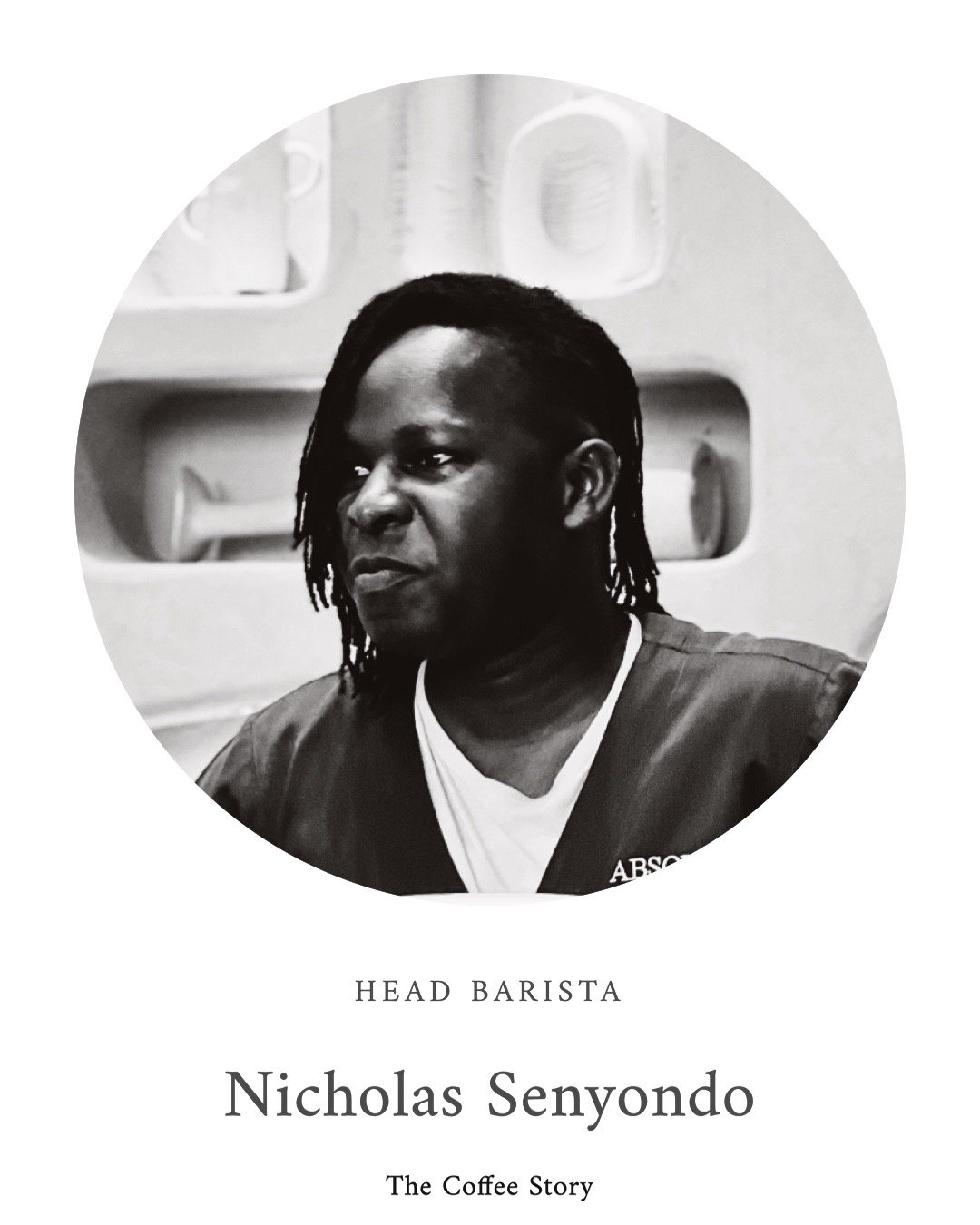How a Barista’s Passion for Coffee Turned into a Career
I have been feeling extremely productive this Ramadan. There’s something about shorter working hours — between no food and being stuffed more than what your gut can handle is my itch to write.
I enjoy writing about people. To highlight their layers of struggle, heartbreak, and achievements is a reminder to myself that we all start our journey we are meant to be on by humbling ourselves.
In my next coffee story, I want to introduce you to Nicholas Senyondo, head barista at Two Neighbors and PEKO. I have had the pleasure of seeing him in action when I was invited to experience the finest coffee tasting experience. Keep reading to find out how his passion for coffee turned into a career.
Tell me a bit about yourself
I am a head barista at Two Neighbors and Peko. I enjoy training and sharing my knowledge with my team about the world of specialty coffee. For the past 12 years of my coffee journey, I have learned to appreciate the culture of the industry.
Serving a cup of coffee has a healing effect on my soul as I represent the coffee value chain from the farmer to the final consumer. I have particularly enjoyed evolving and upskilling these past five years in the UAE and still look forward to learning something new with the same passion I have had since day one.
How did you start your coffee journey?
I started my coffee journey in 2012 at a small high-end coffee shop in Uganda called Endiro Coffee. I was in the service team but a part of me longed to be mentored by Robert Gatesi, African Barista Champion. I used to eavesdrop on his training sessions and became increasingly curious about the intricacies involved in making a drink.
I soon realized it was not as easy as it looked and I had to humble myself and take it one step at a time. Just like that, one of the baristas resigned and I was asked to fill in his place. That’s how my journey began.
What was your first drink of specialty coffee? The first one is always a memorable one, because it can make or break the experience.
It was a cappuccino. I thought it had a very unusual taste though, and I ended up adding sugar to it.
Your preferred brewing method? How do you enjoy your coffee?
I prefer manual pourover because it brings out the origin's taste. I like black coffee that's warm, not too hot.
You often speak about how your passion for coffee turned into a career. Could you explain this?
I always wondered why coffee is given a lot of attention. It’s just coffee, right? No, it’s much more than that. Steve Jobs said it best, “The only way to do great work is to love what you do.” I fell in love with coffee. The more I discovered its intricacies, the more passionate I became. Learning new skills was easy when I became sincere.
What is your definition of great coffee?
Great coffee doesn’t need to score 90+. It’s the kind that makes you reminiscent of your sweetest memories, and makes you come back for more.
As a head barista, how do you select the coffee you plan to serve your customers?
I have a methodology when it comes to selecting new coffees for the cafe:
I make sure I visit the roaster to get an idea on the available origins that are on offer.
We start by cupping them and brewing the coffee as espresso or filter.
We test them our selection in the coffee shop using our calibration and recipe.
The rest is paper work and approval processes to place an order.
You look after a team both in PEKO and Two Neighbors. According to you, how do you lead your team effectively?
My team can only be lead effectively if I have scheduled in a proper time between the two coffee shops. Listening is undervalued when it comes to leadership roles. Having an open ear to listen to your barista’s needs, and sharing lessons and ideas according to context can help build deeper bonds between the team.
What’s your definition of an ideal barista?
An ideal barista should be able to run his or her shift calmly under pressure. They should be able to know how to calibrate coffee machines and brewing gadgets. Effort to connect with your customer must be prioritized to some extent.
You see, a barista’s role requires you to take into account both customer care and troubleshooting. From the business perspective, they should also be actively thinking about maximizing profits and minimizing losses.
Photo credit: Andy Anderson
Training is crucial for achieving success and pursuing your passions. How do you go about training your team?
I train my team in three ways.
Lead by example. I try to be available for any question incase they have doubts.
Leave them to be who they are. When any situation arises, I give them a chance to solve it and guide them when they need a hand. This helps them come up with unique solutions.
Internal competition to boost their training capabilities forcing them to upskill and get better.
What is the next skill you want to pick up in this industry?
It has to be roasting. I have read about it and I am really intrigued to try my hand at it.
What is the future of specialty coffee?
The future of speciality coffee is promising yet worrying at the same time. However, the positives outweigh the negative. From emerging innovative techniques of processing coffee, the new technologies being invented to perfect brewing methods, and espresso machines that ease the work flow of a barista. All of these indicators suggest that the future of specialty coffee is looking bright.
This interview has been edited and condensed for clarity.







